'There is beauty there but it’s also a bit subverted': Ella Walker at Pilar Corrias
Ella Walker presents her first exhibition at London's Pilar Corrias gallery, ‘The Romance of the Rose’, her female figures variously exposed, playful, dangerous and joyous
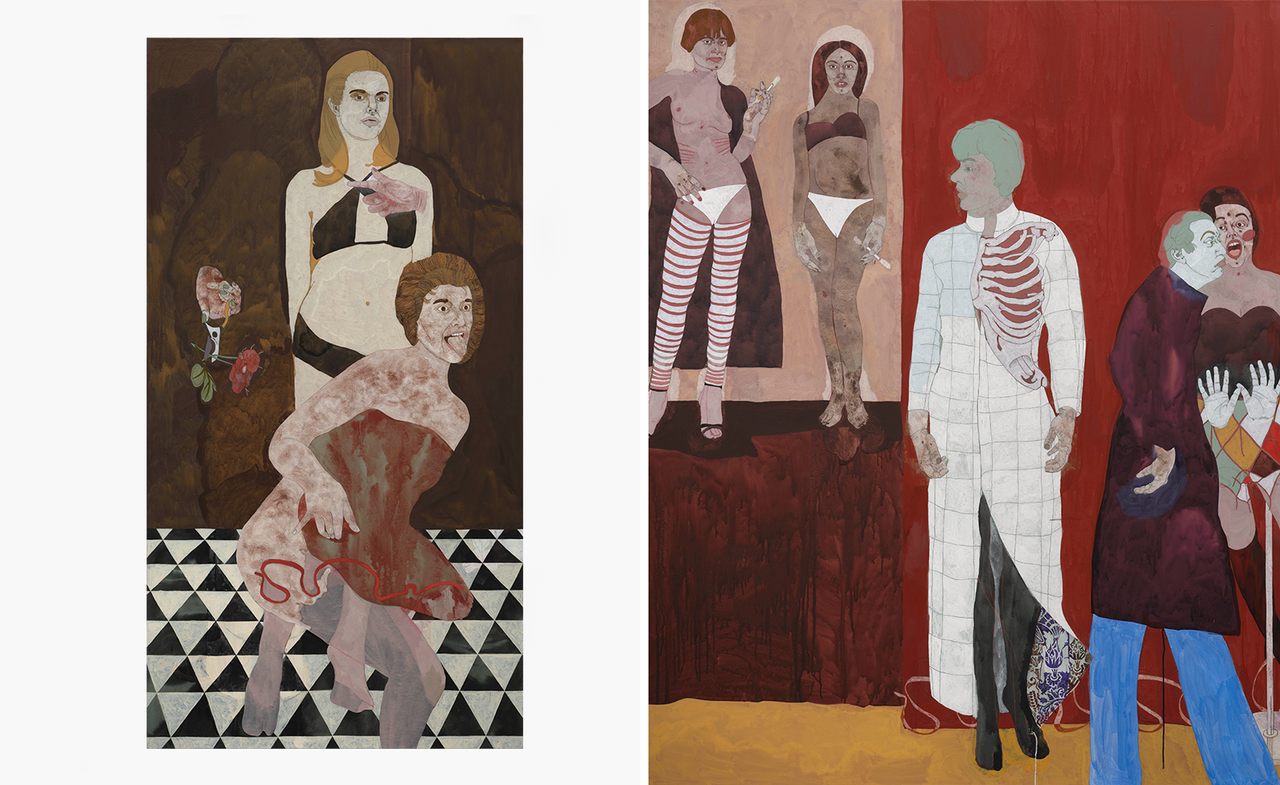
Ella Walker’s paintings are layered in every sense of the word. Informed by traditional painting techniques as well as drawing and collage, her pieces depict figures with knowing or emotionally complex expressions, inviting the viewer to untangle the rich scenes in front of them. For her first solo exhibition at Pilar Corrias, Walker has taken inspiration from the 13th-century French poem ‘The Romance of the Rose’, exploring both its use of language and its form as a medieval manuscript, featuring tiny egg tempera paintings.
The original poem follows a lover who enters a metaphysical enclosed garden and desires to pluck a fresh rose, drawing parallels with courtship. Walker was interested in the language used to describe romantic love. ‘There is a sexual intensity, but also a violence within it,’ she tells me. ‘There is a lot of quite sexist language, exploring this idea of courtly love within the medieval period, but also this power play. The passive role is given to the woman.’
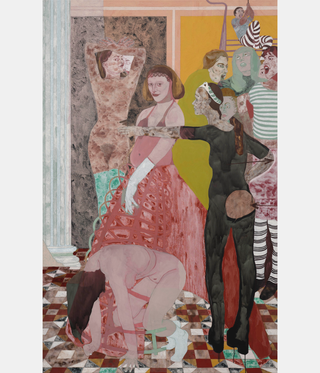
Ella Walker, The Bridled Sweeties, 2024
Women take a central role within Walker’s work, which contains moments of both humour and psychological darkness. For ‘The Romance of the Rose’, she has explored the presentation and treatment of women and their bodies throughout the ages, touching on the revealing and concealing nature of lingerie and fetish wear; generic female characters who embody vices such as hatred and envy; and stock ‘commedia dell’arte’ characters. Her figures are variously exposed, playful, dangerous and joyous; always difficult to pin down. Many project a powerful gaze directly towards the viewer, raising questions of control and spectatorship within the subject-viewer dynamic.
‘There is beauty there but it’s also a bit subverted,’ Walker tells me of her women. One work is named after the often-vilified prophetic Greek mythical figure of Medea – who famously helped Jason to steal the golden fleece and killed her own children in some versions of the story. ‘She is referenced in “The Romance of the Rose” as a terrible woman who has done terrible things,’ says Walker, who has also reflected upon Maria Callas’ portrayal of Medea. In Pasolini’s 1969 film, this character is seen through both a pagan and a classical lens. It is the classical format that breaks her. ‘What is appropriate within each context is so different, so in the second part she loses her mind and becomes vicious and violent,’ says Walker. ‘In the Western world we often think about depictions of women’s bodies in classical form, but messiness and violence are very embodied within women.’
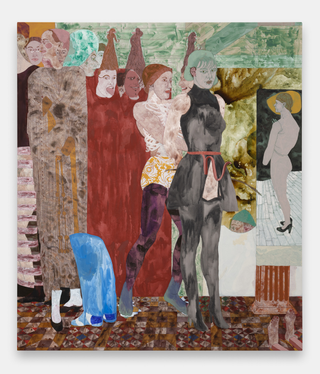
Ella Walker,The Garden, 2024
Elements of control and mess are reflected in the artist’s technique. There is a strong sense of control in her use of line and form, though there are moments of dripping and puddling, as though these neatly ordered parts could come apart at any moment. Similarly, the bodies she depicts are often made of composite elements, creating a disturbingly disjointed feel. Her flattened compositions seem the place the viewer right in the middle of the action, in a very direct spatial and emotional relation to the figures. She uses her own pigments, and also works with egg tempera, watercolour and acrylic.
This exhibition follows Walker’s long dedication to historical source material, especially that which has a narrative suggestion. She often draws upon the early Renaissance, inspired by frescos and the work of Piero della Francesca and Giotto. She also explores the Ballets Russes and more contemporary imagery, such as the secret erotic polaroids of Carlo Mollino. She looks for an element of the unknown within her source material, from which she has some freedom to play.
‘It’s not to subvert those traditional ideas,’ she tells me of her mixing influences. ‘There is a stillness and beauty to them, and I think it’s interesting to bring in more contemporary images or 1960s pin-up magazine cuttings and rework them into the paintings. I like to be aware of these reference points and then when I’m making my work I can really play around and fill in the gaps for myself. There is a lot of potential in that unknown. It’s open and alive.’
Wallpaper* Newsletter
Receive our daily digest of inspiration, escapism and design stories from around the world direct to your inbox.
Ella Walker presents her first exhibition at London's Pilar Corrias gallery, 'The Romance of the Rose' from 11 September – 9 November 2024

Artist Ella Walker
Emily Steer is a London-based culture journalist and former editor of Elephant. She has written for titles including AnOther, BBC Culture, the Financial Times, and Frieze.
-
 You can stay in Jame Eagan’s glass-and-steel mansion from Severance
You can stay in Jame Eagan’s glass-and-steel mansion from SeveranceThe Taghkanic House by Thomas Phifer serves as the home of Lumon’s CEO in the AppleTV+ series, and can be rented out for dystopian stays
By Anna Solomon Published
-
 The Further Reading Library is a new collection of esoteric art and design books
The Further Reading Library is a new collection of esoteric art and design booksCollating the forgotten histories of left-field creatives, this new publishing imprint reveals hitherto unseen artistic experiments from the past
By Jonathan Bell Published
-
 Ai Weiwei's major retrospective in Seattle is a timely and provocative exploration of human rights
Ai Weiwei's major retrospective in Seattle is a timely and provocative exploration of human rights'Ai, Rebel: The Art and Activism' of Ai Weiwei is on now at the Seattle Art Museum
By Hadani Ditmars Published
-
 Celia Paul's colony of ghostly apparitions haunts Victoria Miro
Celia Paul's colony of ghostly apparitions haunts Victoria MiroEerie and elegiac new London exhibition ‘Celia Paul: Colony of Ghosts’ is on show at Victoria Miro until 17 April
By Hannah Hutchings-Georgiou Published
-
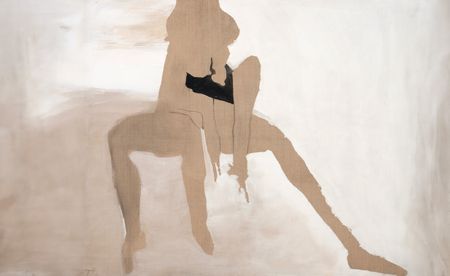 Teresa Pągowska's dreamy interpretations of the female form are in London for the first time
Teresa Pągowska's dreamy interpretations of the female form are in London for the first time‘Shadow Self’ in Thaddaeus Ropac’s 18th-century townhouse gallery in London, presents the first UK solo exhibition of Pągowska’s work
By Sofia Hallström Published
-
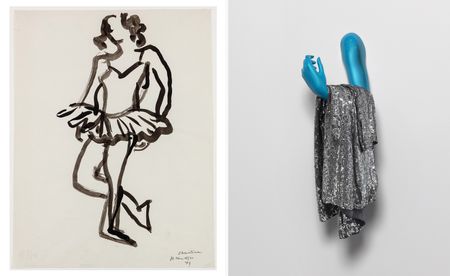 Sylvie Fleury's work in dialogue with Matisse makes for a provocative exploration of the female form
Sylvie Fleury's work in dialogue with Matisse makes for a provocative exploration of the female form'Drawing on Matisse, An Exhibition by Sylvie Fleury’ is on show until 2 May at Luxembourg + Co
By Hannah Silver Published
-
 What to see at BFI Flare film festival, 'a rich tapestry of queer experience'
What to see at BFI Flare film festival, 'a rich tapestry of queer experience'As one of the only film festivals to explicitly profile LGBTQI+ cinema, BFI Flare Film Festival remains a unique and beloved event. Here's what to see as it makes its return to London from 19 - 30 March
By Billie Walker Published
-
 The enduring appeal of Transport for London’s seat designs
The enduring appeal of Transport for London’s seat designsFrom artist Rita Keegan’s new collage to fashion designer Adam Jones’ Overground suit, TfL moquettes continue to enjoy a cult status
By Kyle MacNeill Published
-
 ‘There's a lot to fear and a lot to love in this world’: Penny Goring unveils new work in London
‘There's a lot to fear and a lot to love in this world’: Penny Goring unveils new work in LondonA new collection of large-scale collages takes centre stage at 'Penny Goring: Cold Hunt Corsage' at Arcadia Missa, London
By Hannah Silver Published
-
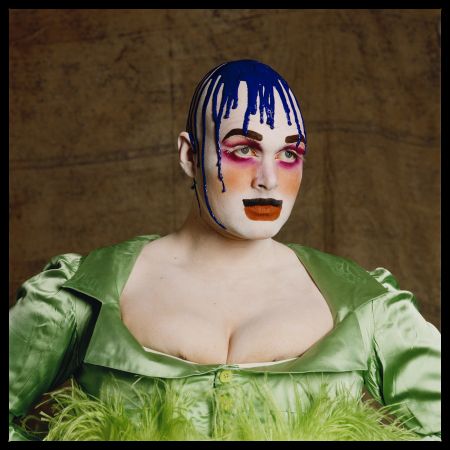 ‘Leigh Bowery!’ at Tate Modern: 1980s alt-glamour, club culture and rebellion
‘Leigh Bowery!’ at Tate Modern: 1980s alt-glamour, club culture and rebellionThe new Leigh Bowery exhibition in London is a dazzling, sequin-drenched look back at the 1980s, through the life of one of its brightest stars
By Amah-Rose Abrams Published
-
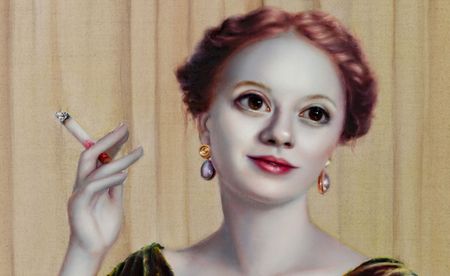 ‘Yay, To Have a Mouth!’: a London show explores our oral fixation, from Freud to fairytales
‘Yay, To Have a Mouth!’: a London show explores our oral fixation, from Freud to fairytalesThis group show at Rose Easton gallery in east London, created in collaboration with Ginny on Frederick, uncovers our fascination with the mouth
By Emily Steer Published